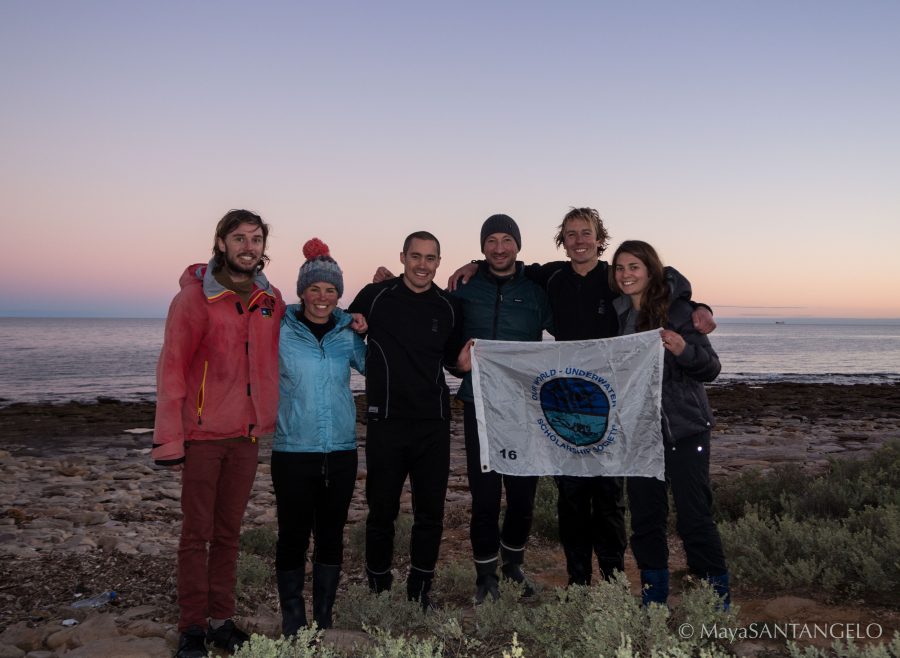There are some experiences that I never imagined would ever actually be a part of my scholarship year. Getting to join on a film shoot with the BBC Oceans Team was certainly one of them. Having grown up with a love for the natural world from an early age, this fascination was so often enlivened, like many others, by the visual spectacles of BBC documentaries and Sir David Attenborough’s storytelling. But with my growing interest in science and communication, my inner nerd began to develop a greater appreciation and wonder for the stories behind these incredible shots. There had to be more to it than the iconic narration we all loved – what goes into telling these wildlife stories, and what are we learning from these observations?
Before I go any further… don’t worry, I didn’t get to meet David Attenborough to ask him these questions personally (that’s still on the scholarship dream list). And while I’m not actually allowed to give much away about the shoot I was involved with, my experience with the BBC Oceans Team offered such a fantastic opportunity to learn about the efforts and value involved in underwater storytelling.
Thanks to some lucky timing, 2012 Australasian Scholar, Yolly Bosiger happened to be in Australia with the Oceans team shooting a few sequences for the upcoming BBC documentary, Blue Planet Two (scheduled to come out sometime 2017). Since her time as a scholar, Yolly had taken up a role as a researcher for the Natural History Unit (NHU). With my bags already packed waiting in suspense to leave at a moment’s notice, I hopped on a plane back down to South Australia to join the team on one of the shoots as a safety diver and dive supervisor, along with 2013 AU Scholar, Stefan Andrews. This was an experience I was so looking forward to, as an opportunity to learn first hand, and practically, what goes into a documentary film shoot… and a BBC one at that! On top of it all, I was so excited to finally be meeting, and getting to work with, Yolly and Stefan – two scholars that had been so inspirational in my early days of learning about the scholarship!
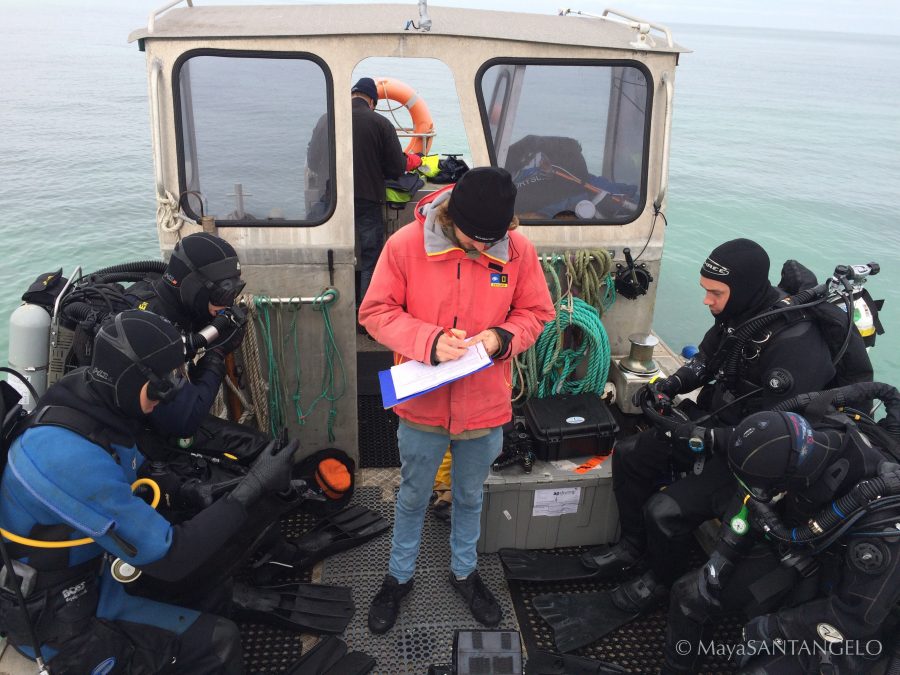
After meeting Yolly and Stefan, I was introduced to Hugh Miller (main, and not to mention award-winning, cameraman), John Chambers (Director of the shoot) and Alex Vail (assistant cameraman). By joining the team, my role took multiple forms, with the goal of giving me the chance to be a crucial member of the team as much as possible. I was involved in everything from general help for the shoot, including lifting heavy gear and filling tanks, to operating as a safety diver and dive supervisor, and helping to capture behind the scenes photos, footage and interviews.
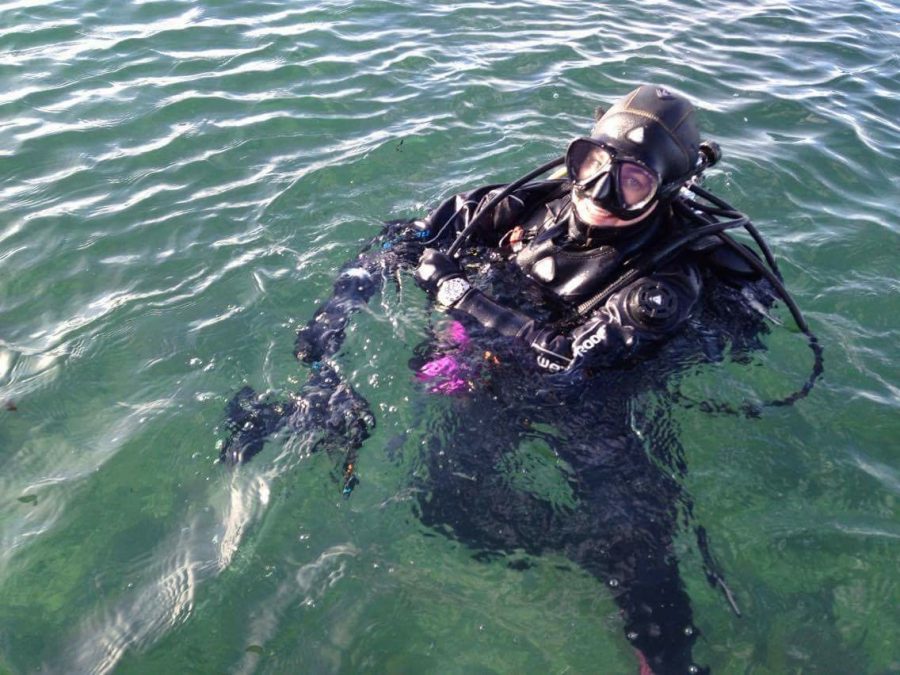
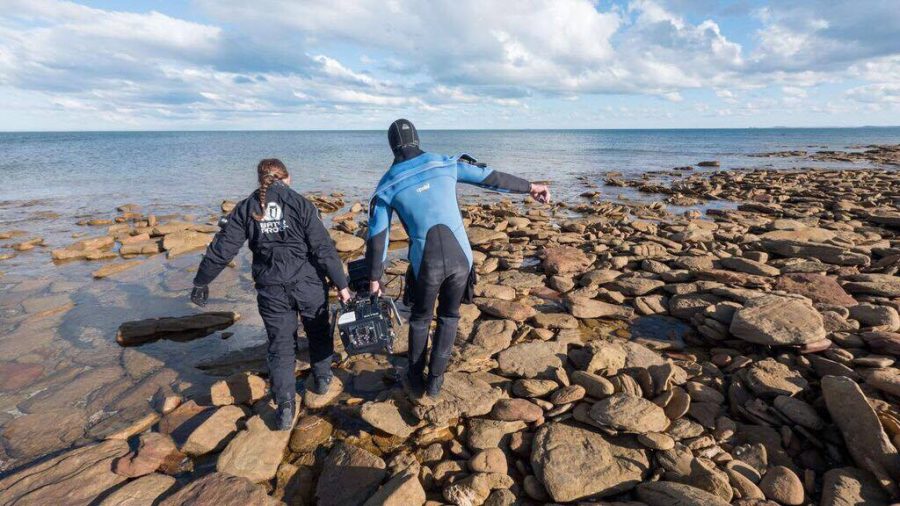
It was great to catch up with Yolly and Stefan about all things scholarship, especially about what they’ve been up to since. With particular significance to this experience, it was great to learn about Yolly’s role and work with the BBC. As a researcher for the NHU, Yolly is essentially in charge of the research (from a scientific perspective) involved with developing stories for wildlife sequences within BBC’s natural history documentaries. Imagine getting to come up with a story that will be narrated by David Attenborough! What’s really cool is that her role in researching the wildlife behaviour and content they want to document is an essential component to ensure that when the production is released, what we get to see is “new wildlife action” or “new science” (i.e. not something we’ve seen before in another series).
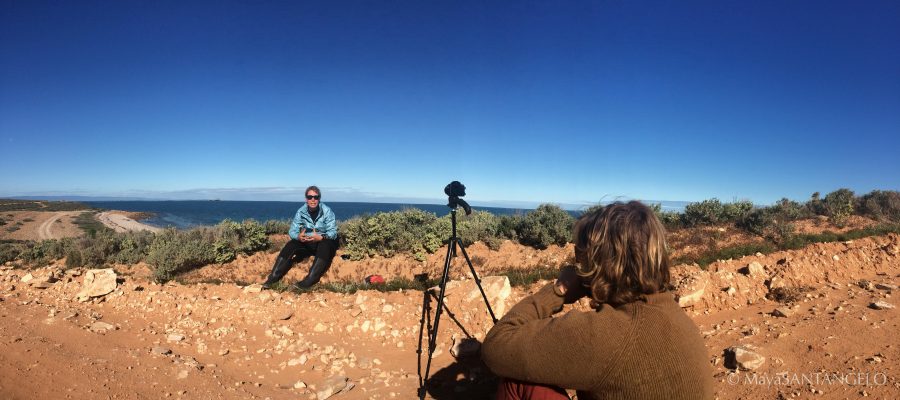
In learning about Yolly’s role as a researcher, and talking with Stefan about all things filmmaking, I was able to gain a greater understanding and appreciation for the importance of having a story – whether creating a one-minute short film, or a BBC documentary. Rather than going out and filming, getting some footage and then putting a story together from what you get, it is important to work backwards from researching the topic, developing the story you want to tell, and then figuring out what kind of shots you need/want to tell that story.
Learning about this brought me back to one of the lessons I took away from reading about Stefan and Yolly’s scholarship years, where they talked about the importance of having a story when you are filming. To be honest, I didn’t really understand this very well at the time, and thought it sounded like a daunting thing to focus on when filming – it made me worried that if I didn’t have a story, that I was just shooting for no reason and hoping that something might inspire me. For me, realizing the importance of having a story to tell, and especially the research behind it, was a great lesson for me to take away early on in my scholarship year, as a way to approach and help me make the most out of each experience.
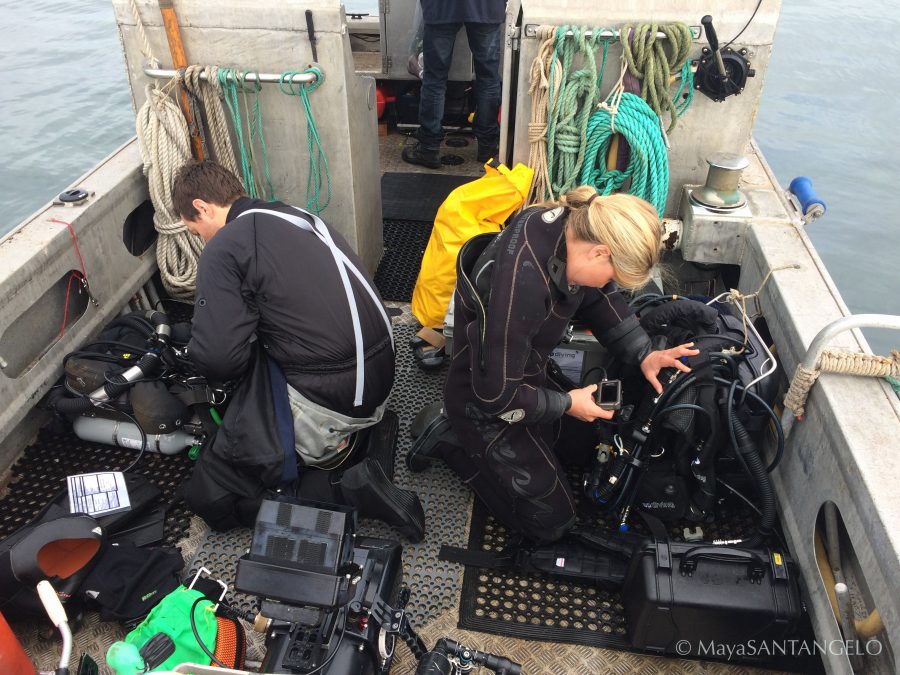
Days in the field with the BBC Oceans Team were filled with everything from early starts, cold water and long dives, to the unique opportunity to witness and document exciting wildlife behaviour that may be completely new to science! This was a particularly exciting aspect of the shoot for me, as well as getting to learn about the special camera gear they were using to capture the action.
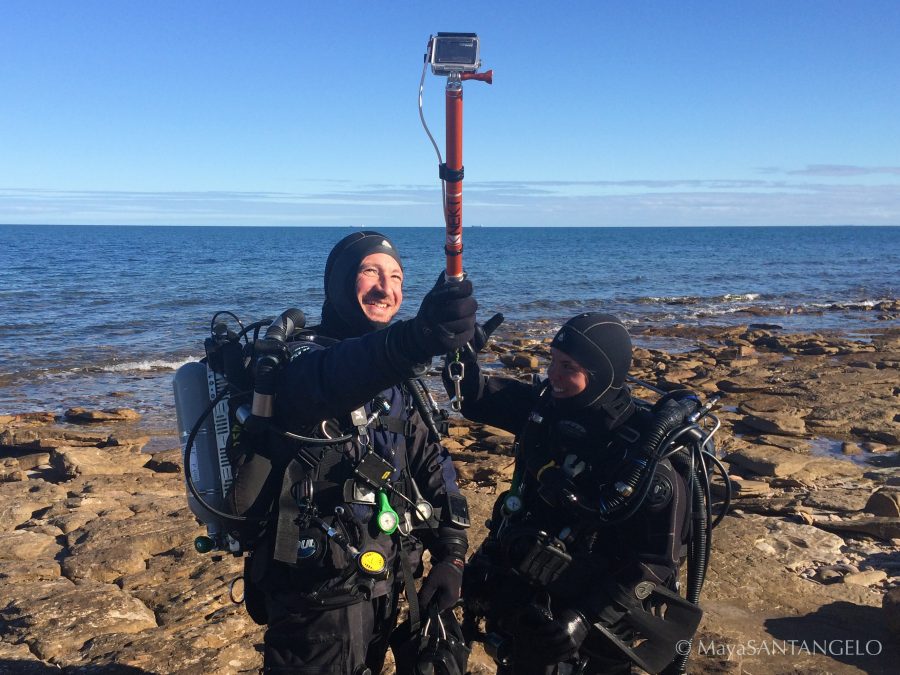
At the end of a day of shooting, Yolly goes through the footage. Together with Alex and Stefan, it’s very exciting to watch and be able to see how the progress is going. It’s really cool to think about what part of the story different shots can or might be able to tell, and how to improve some shots or some ideas to focus on for the next days of filming, such as creativity with lighting and angles.
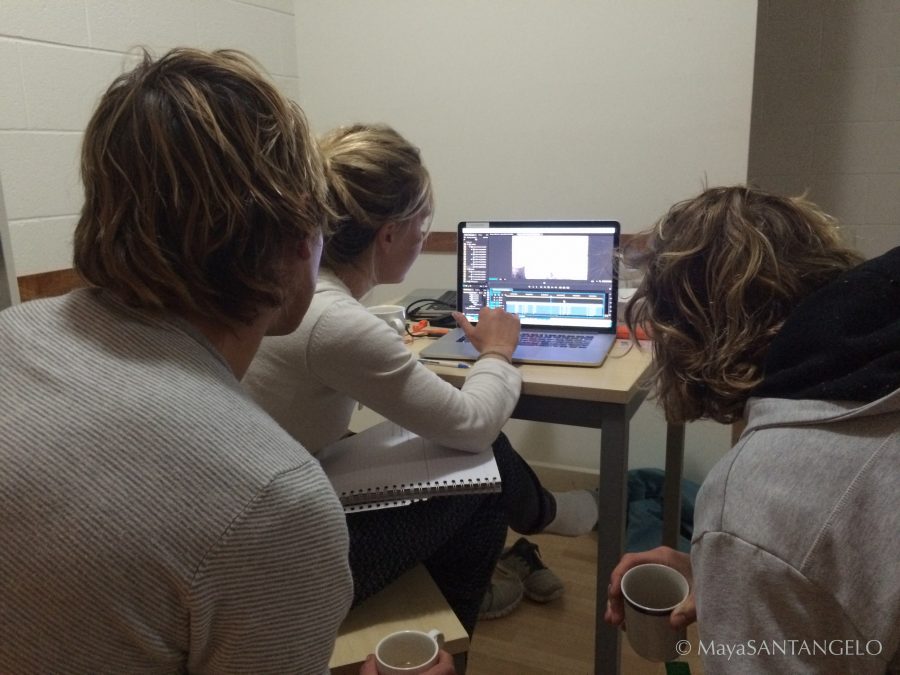
Yolly is in a unique position as a researcher for the NHU. From being involved in the initial process of developing the story, she then gets to see it come together out in the field. Individual shots and sequences needed to tell the story are often displayed visually in the form of a story board or checklist, which can then be taken into the field and used to tick off shots as they’re captured, and focus on what sort of shots you still need to get.
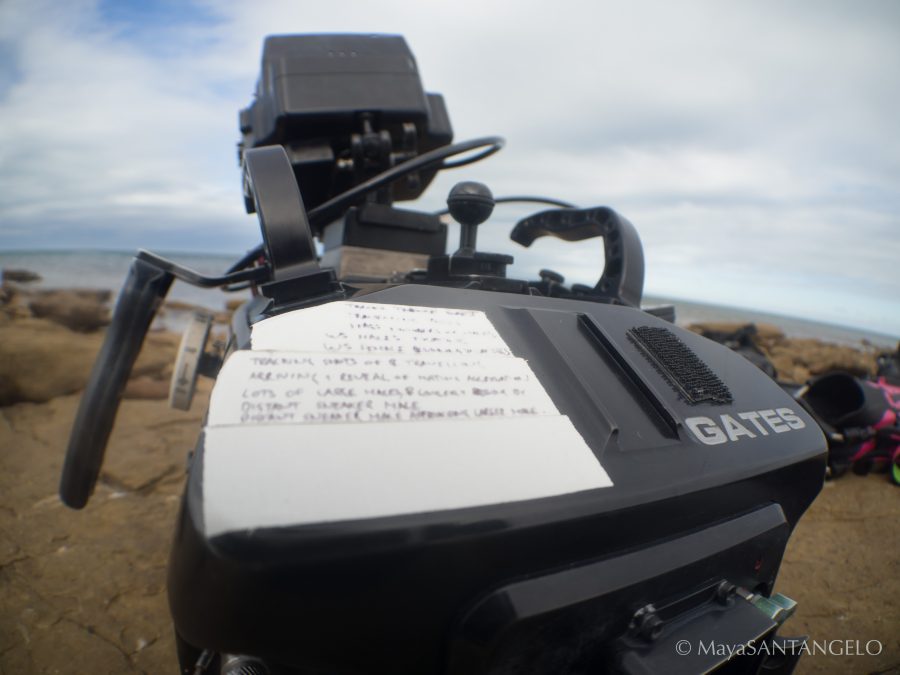
Of course, with all that said, it is important to remember that when dealing with documenting wildlife, things don’t always go to plan. Being on this shoot, it really was amazing to see just how much work, time and effort goes into filming these sequences. It certainly gave me a greater appreciation for all the challenges and efforts associated with natural history filming, especially underwater.
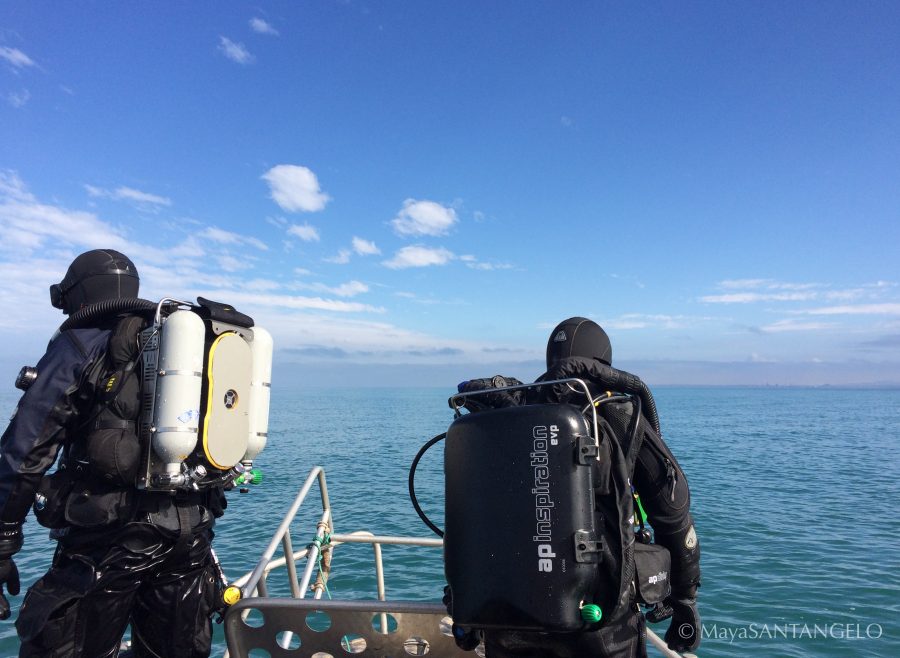
When you really compare it with other projects in film or television, where the focus is often on directing people to go through specific sequences, there is so much more involved in a natural history production, simply because of the nature of, well… nature. As well as the obvious issues of actually dealing with finding the particular wildlife and behaviours in mind, weather and working conditions become serious contributing factors to consider. For example, on days where the visibility may not be very good after some adverse weather, any footage that may be captured would likely not be useable to cut in with other footage from days with good vis.

There may be specific ideas of shots in mind to capture to tell a certain story, but sometimes it just doesn’t happen. Sometimes you can come up with something else, sometimes it’s a complete fail. But that’s all part of it. (Spoiler alert, this shoot was not a complete fail… just an example of the nature of the beast/ocean!)
Among learning about the challenges and subsequent underwater-fist pump-rewarding moments involved with capturing natural history sequences of a BBC documentary, one of the aspects of this experience that I found most interesting was gaining a greater appreciation of the involvement and value of science in these sorts of productions. Having always loved wildlife documentaries, I never really realized or fully appreciated the research and science behind it all. Essentially, stories and ideas will be developed from current research, whether it be actual published science (new and old), with the goal to be the first to visually document certain behaviour or wildlife. On the other hand, sometimes by them documenting these things that may have previously just been observations in the field, will spur these things to actually be studied and published scientifically.
It’s so interesting to consider both sides. It was great to not only learn about how these productions can contribute to science, but also about how Yolly, Hugh and Alex were able to bring their backgrounds in marine biology to these productions (I told you this experience would be a treat for my inner nerd).
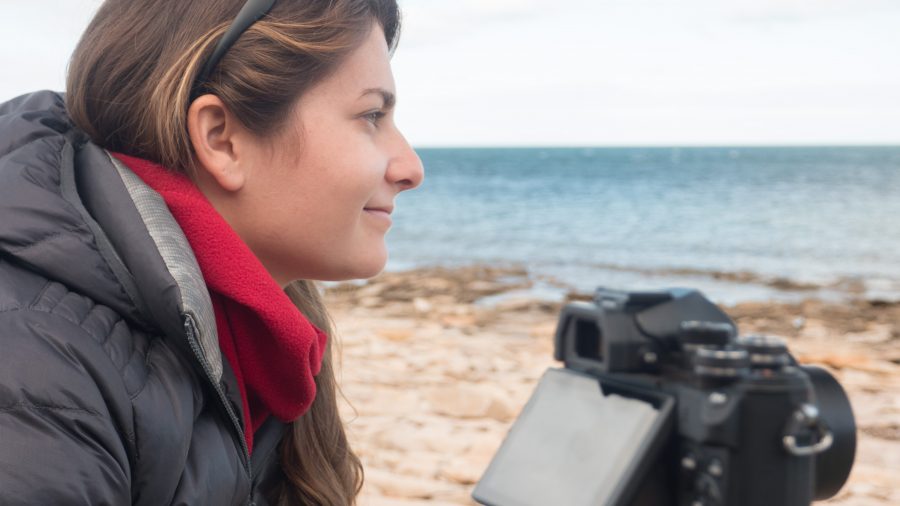
Despite diving in some of the coldest water I have yet to experience (details of which I will not disclose for the sake of saving my North American and European counterparts just laughing at me), getting to join the BBC Oceans Team on a documentary film shoot was as rewarding of a learning experience as I always hoped it would be. A huge thank you for this opportunity to Yolly and BBC Oceans, and the great conversations, advice, knowledge and laughs with Stefan, Alex, John and Hugh. I can’t wait to see the final outcome of the production, and what science might come out of the exciting new behaviours we were so lucky to witness and document – stay tuned in 2017!
